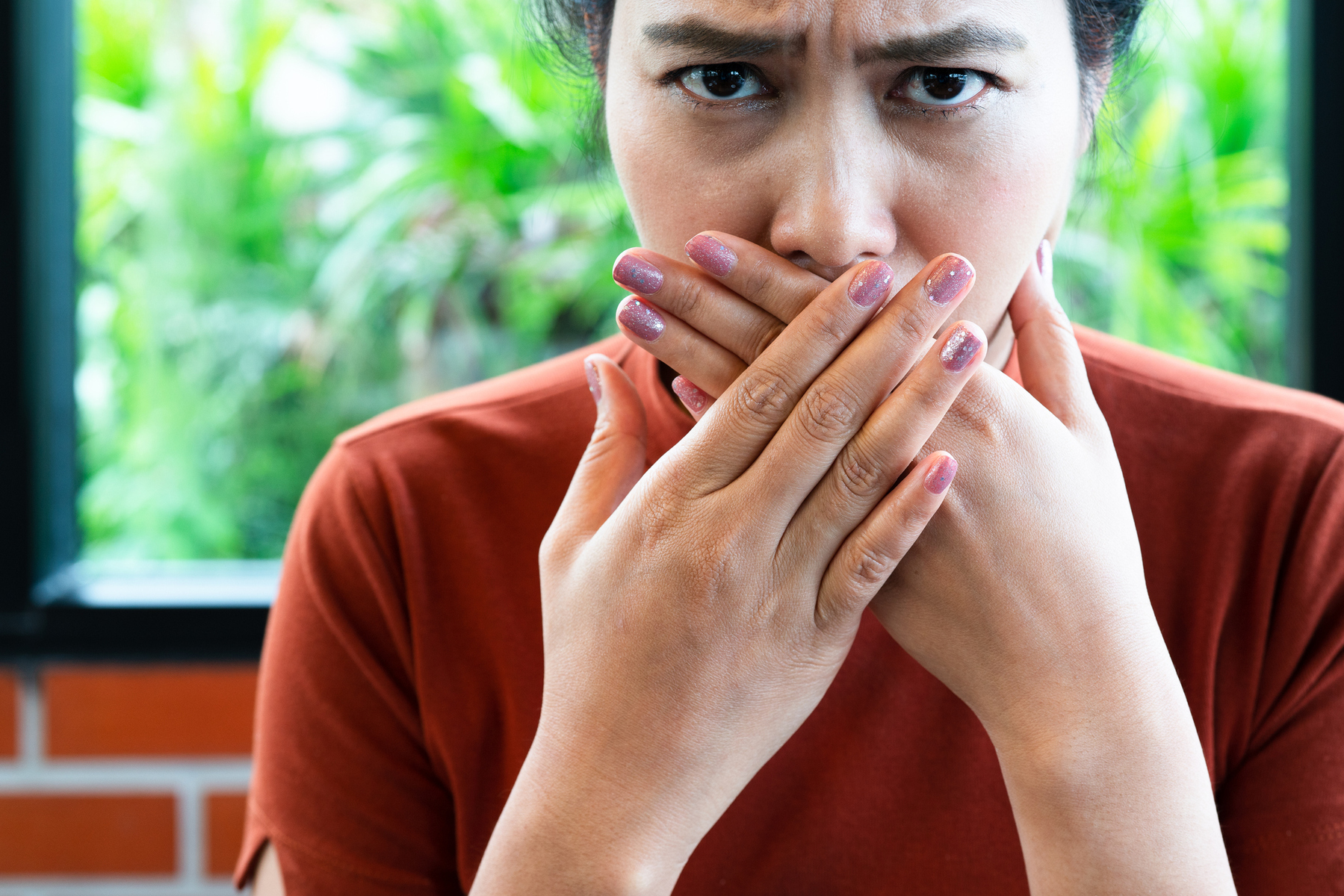Dealing with Bad Breath

Causes of Bad Breath
Bad breath can be caused by various factors, including:
- Poor oral hygiene: When you don't brush and floss your teeth regularly, food particles can remain in your mouth, leading to bad breath.
- Dry mouth: Saliva helps to cleanse your mouth and remove odor-causing bacteria. When you have a dry mouth, such as when you sleep or are dehydrated, your mouth can become a breeding ground for bacteria.
- Certain foods: Foods such as garlic, onions, and spices can cause bad breath.
- Smoking: Smoking can cause a bad smell in your mouth and affect your oral health.
- Medical conditions: Certain medical conditions, such as gum disease, respiratory infections, and acid reflux, can cause bad breath.
Preventing Bad Breath
There are several ways to prevent bad breath, including:
- Brushing and flossing your teeth twice a day: This helps to remove food particles and bacteria from your mouth.
- Cleaning your tongue: Use a tongue scraper or brush to clean your tongue, as bacteria can accumulate on your tongue and cause bad breath.
- Drinking plenty of water: This helps to keep your mouth hydrated and flush out bacteria and food particles.
- Avoiding certain foods: Foods such as garlic, onions, and spices can cause bad breath, so it's best to avoid them or rinse your mouth after eating them.
- Quitting smoking: Smoking can cause bad breath and affect your oral health, so it's best to quit.
- Regular dental check-ups: Visit your dentist regularly for check-ups and cleanings to maintain good oral health.
Maintaining Fresh Breath
Aside from preventing bad breath, there are also ways to maintain fresh breath throughout the day, such as:
- Chewing sugarless gum: This stimulates saliva production and helps to neutralize odor-causing bacteria.
- Using mouthwash: Mouthwash can help to kill bacteria and freshen your breath. However, it's important to choose a mouthwash that doesn't contain alcohol, as alcohol can dry out your mouth and worsen bad breath.
- Eating crunchy fruits and vegetables: Foods such as apples and carrots can help to scrub your teeth and remove plaque and bacteria.
Pros and Cons
Pros
- Prevents bad breath
- Maintains good oral health
- Boosts confidence
- Improves overall health
Cons
- Requires effort and consistency
- May not completely eliminate bad breath in some cases
- Some people may experience sensitivity or discomfort when using certain dental products
Conclusion
Dealing with bad breath can be challenging, but it's important to take steps to prevent it and maintain fresh breath throughout the day. By practicing good oral hygiene, avoiding certain foods, quitting smoking, and visiting your dentist regularly, you can keep bad breath at bay and enjoy a healthy, fresh mouth.
FAQ
1. What causes bad breath?
Bad breath can be caused by various factors, including poor oral hygiene, dry mouth, certain foods, smoking, and medical conditions.
2. How can I prevent bad breath?
You can prevent bad breath by practicing good oral hygiene, cleaning your tongue, drinking plenty of water, avoiding certain foods, quitting smoking, and visiting your dentist regularly.
3. Can mouthwash help with bad breath?
Yes, mouthwash can help to kill bacteria and freshen your breath. However, it's important to choose a mouthwash that doesn't contain alcohol, as alcohol can dry out your mouth and worsen bad breath.
4. What should I do if I have persistent bad breath?
If you have persistent bad breath despite practicing good oral hygiene, you should visit your dentist to rule out any underlying dental or medical conditions that may be causing it.
